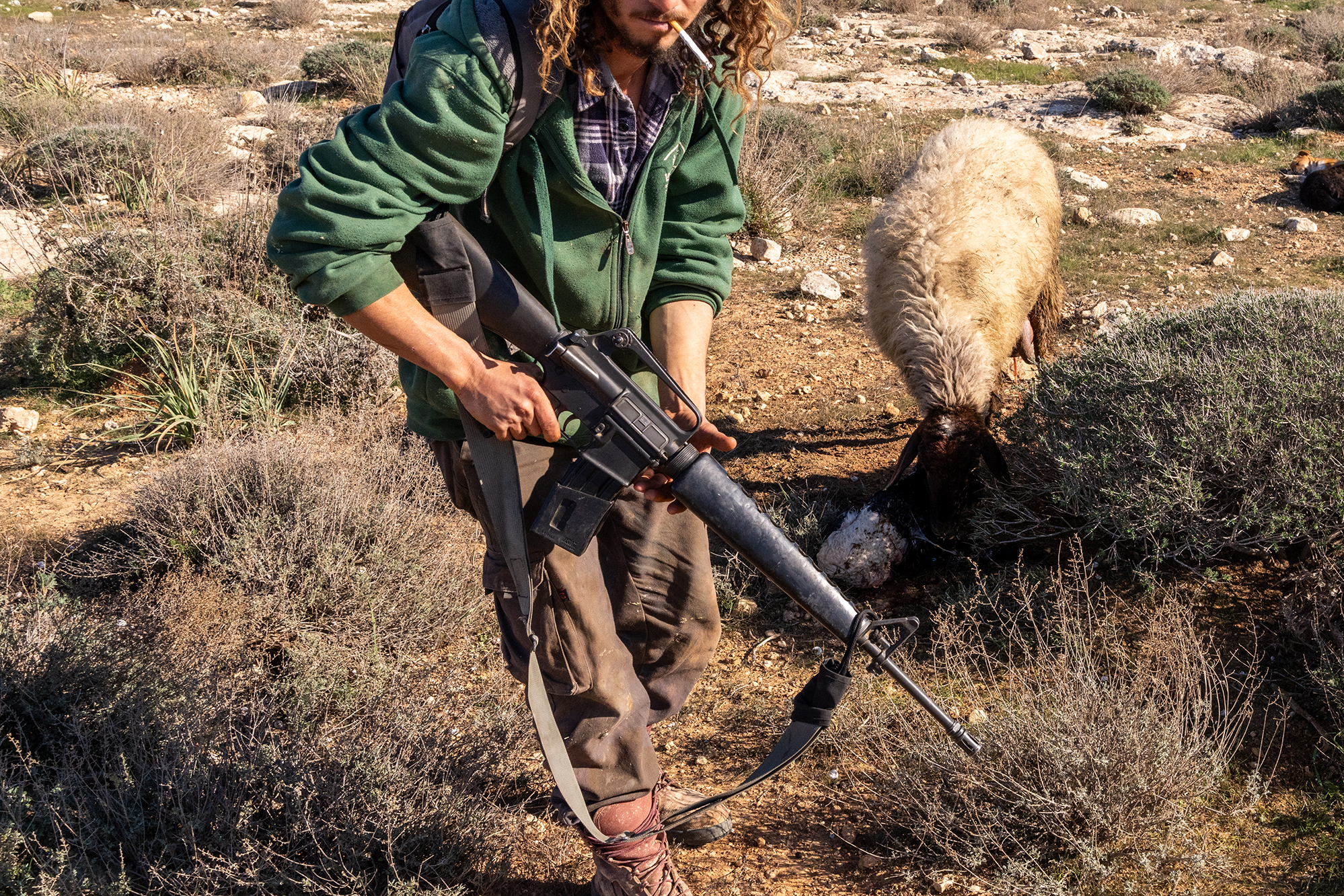New York Times wins June Sidney for Exposing How Extremist Settlers Took Over Israel
Ronen Bergman and Mark Mazzetti of the New York Times win the June Sidney Award for “Unpunished: How Extremist Settlers Took Over Israel.” Equal parts journalism and history, this deeply reported series addresses an urgent question: “How did a young nation turn so quickly on its own democratic ideals, and at what price?”
The series documents fifty years of harassment, assault and murder of Palestinans at the hands of Jewish settlers in the West Bank and exposes the complicity of Israeli officials with these crimes. The series also shines a harsh light on the criminal extremists behind the violence and documents the ascent of their leaders to the highest levels of the Israeli government.
“The senior officials who spoke to us for the story are angry not only about the history, but also about the future of their country,” said Bergman and Mazzetti in our Backstory interview. “They recognize that a true democracy can’t exist when there are two systems of justice, and also that the October 7 attacks gave cover to extremists in the West Bank to carry out violence with few penalties.”
Since the October 7 attacks, settlers and the Israeli military have stepped up their persecution of Palestinians in the West Bank. A review of three dozen cases of aggression against Palestinians, including a shooting, found that not a single settler was charged with any crime. The police would often refuse to respond to incidents reported by Israeli human rights activists.
Israel has illegally occupied the West Bank since 1967. From the outset, a movement known as Gush Emunim was determined to settle the land for Israel. However, Jewish settlements in the West Bank are unlawful because Israel is barred by the Geneva convention from transferring its own population into occupied territory.
“Impunity is corrosive to democracy,” said Sidney judge Lindsay Beyerstein, “This series shows how Israel’s complicity with terrorist groups in the West Bank has endangered not only Palestinian lives but Israeli democracy itself.”
Ronen Bergman is a staff writer for The New York Times Magazine, based in Tel Aviv. His latest book is “Rise and Kill First: The Secret History of Israel’s Targeted Assassinations,” published by Random House.
Mark Mazzetti covers national security, intelligence and foreign affairs for the New York Times. He is a Pulitzer Prize-winner and a three-time Polk Award-winner.

Backstory
Q: What inspired you to embark on this project?
A: The reporting began in 2015 in an attempt to get answers to a somewhat simple question: why was the Israeli security apparatus, which had become so effective in its fight against Palestinian terrorism, so ineffective in its efforts to thwart Jewish terrorism? Our investigation revealed many reasons for this, one of which is that there are two systems of justice that give organizations like Shin Bet much less authority to operate against Jews than against Palestinians. The West Bank is under the command of the I.D.F., which means that Palestinians are subject to a military law that gives the I.D.F. and the Shin Bet considerable authority. They can hold suspects for extended periods without trial, and deny them access both to a lawyer and the evidence against them. They can wiretap, conduct secret surveillance, hack into databases and gather intelligence on any Arab living in the occupied territory with few restrictions. Palestinians are subject to military — not civilian — courts, which are far more punitive when it comes to accusations of terrorism and less transparent to outside scrutiny.
But our reporting brought up something much more important: that for decades, since the 1970s, the police, Shin Bet, the IDF, prosecutors and the courts have all utterly failed to enforce the law on ultranationalist and extremist settlers. This has happened even though, over the years, senior government officials have publicly warned that this was happening—and warned of the dangers if it continues..
Q: What happens to a democracy when insurrectionists and terrorists are allowed to operate with impunity and even in collusion with the state? Do you see any parallels with the United States’ struggle to hold extremists accountable?
A: Back in 2016, former Shin Bet chief Ami Ayalon told us that Shin Bet is “plugged into a much, much bigger phenomenon of failure” operating at the political level – from the cabinet to the prime minister to the Israeli court system. Their signal, he said, to paraphrase him, is that “if a Jew is killed by terrorists, it’s horrible. But if a Palestinian is killed by terrorists, it’s not the end of the world.” Ayalon and others correctly predicted a dark future when the lawless would become the law. In some way, this became official when men like Bezalel Smotrich and Itamar Ben-Gvir — two people who for years have unapologetically endorsed violence against Palestinians – became senior officials in the Netanyahu government.
In terms of the U.S. example, it’s tricky to draw direct parallels. But one thing we realized was how much the transformation of the political right in Israel mirrored that of the United States. For instance, during the 1980s, Likud party members of the Knesset shunned the most extreme elements of the settler movement, and even walked out of the Knesset when Rabbi Meir Kahane got up to speak. Now, Netanyahu embraces men like Smotrich and Ben Gvir – even if it’s out of political necessity. The Republican party has seen a similar transformation, with Republican lawmakers embracing the cause of the January 6 insurrectionists and other extremists.
Q: Why do you think senior Israeli officials were willing to speak so frankly with you about the lawlessness in the West Bank?
A: The senior officials who spoke to us for the story are angry not only about the history, but also about the future of their country. They recognize that a true democracy can’t exist when there are two systems of justice, and also that the October 7 attacks gave cover to extremists in the West Bank to carry out violence with few penalties. They also see that, now that ultra right wing extremists have ascended to national security positions in the Israeli government, in many ways the settlers and the state have become one. We are extremely grateful to them for having the courage to speak to us.
Q: Give us an overview of your investigative strategy for this project.
A: This is a story that took many years to report, so maybe we needed a better strategy! But joking aside, there wasn’t a defined strategy other than “let’s see how many people we can get to speak to us.” We tried to speak to everyone – prime ministers, heads of Shin Bet, activists, settlers, Palestinian officials, victims of violence, American officials — to try to tell the most complete picture of what we came to call “crime without punishment.”



